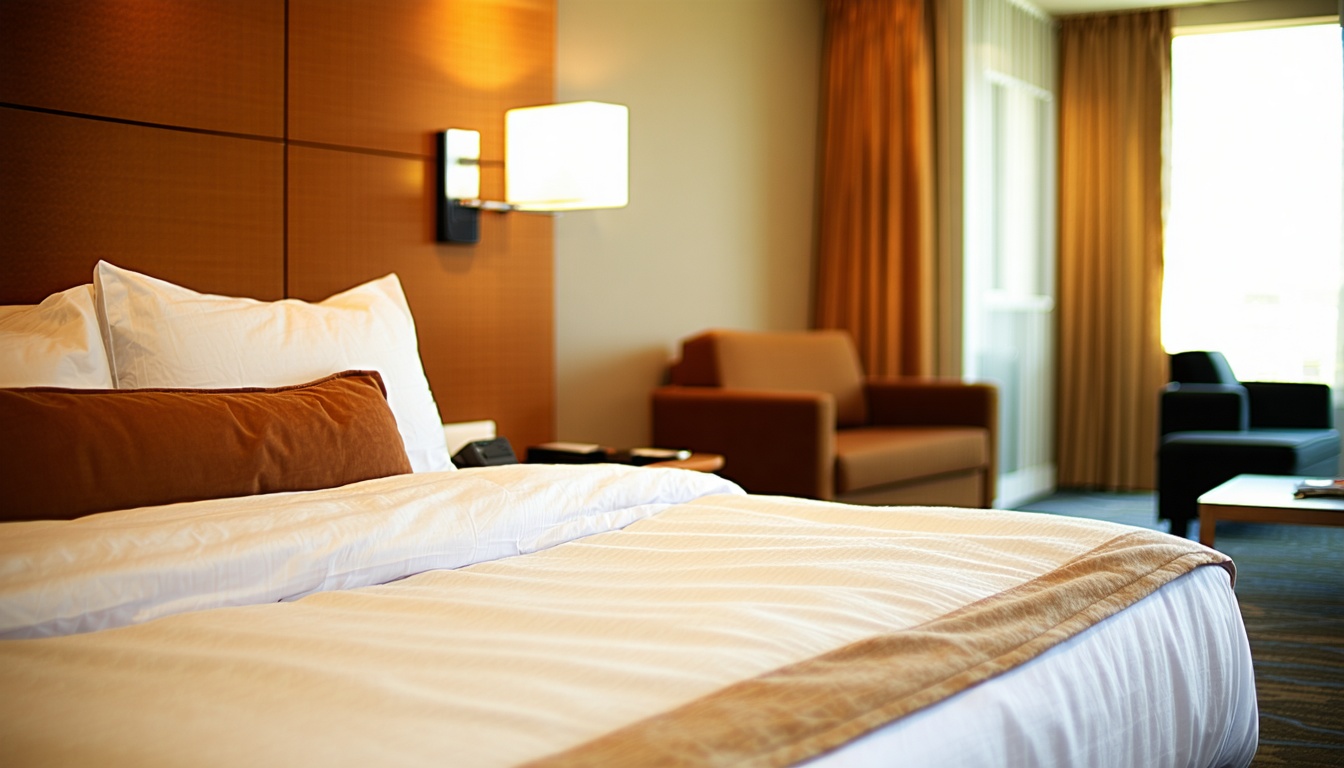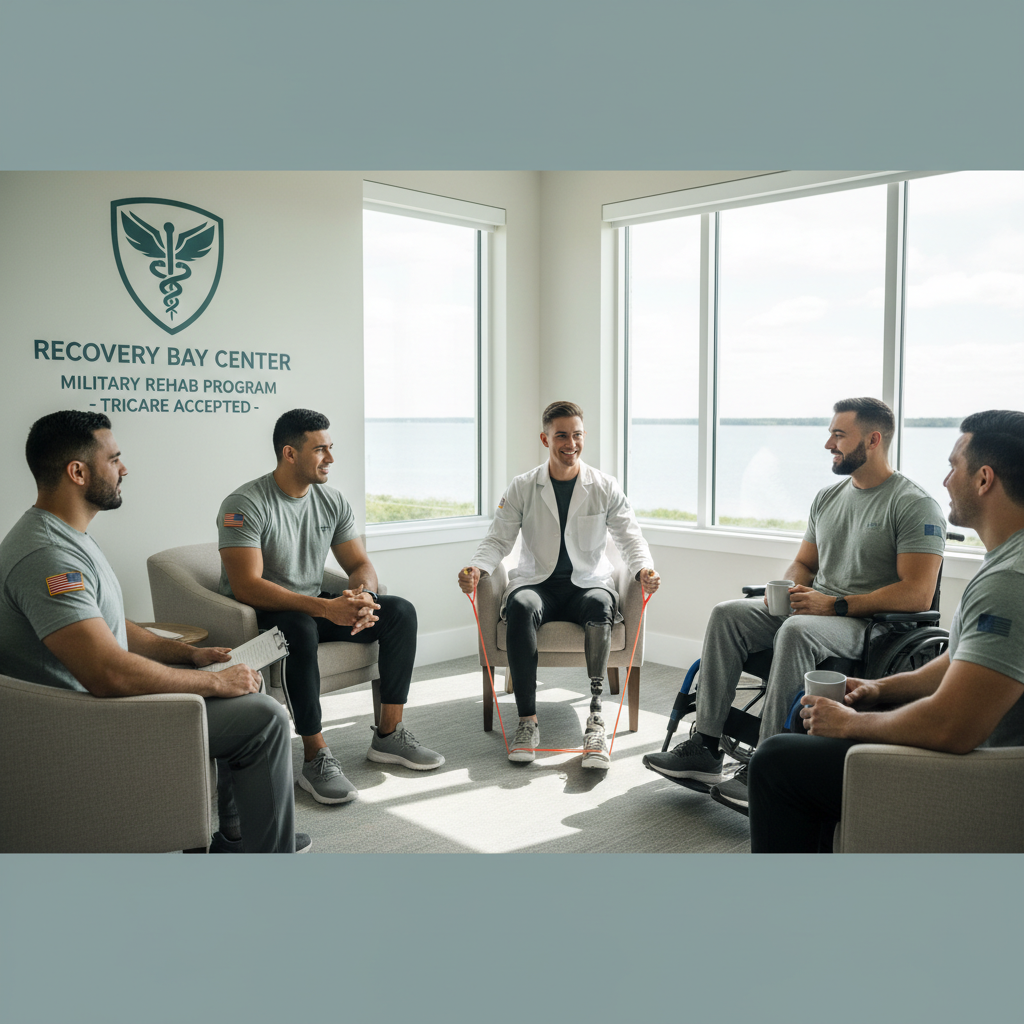The Importance of Private Rooms
Choosing the right accommodation during recovery can significantly impact healing. At Recovery Bay Center, we prioritize providing both private and semi-private rooms to enhance our patients’ experiences. Here, we discuss the health benefits of private rooms, as well as the influence of room configurations on sleep quality.
Health Benefits of Private Rooms
Private rooms play a crucial role in improving health outcomes. Studies have shown that individuals in private accommodations experience a significantly lower risk of contracting infections such as Influenza A compared to those in shared spaces. This reduction is primarily due to the decreased exposure to pathogens that typically spread in communal environments. Enhanced health and safety are vital, especially for those undergoing drug and alcohol detox or other treatments.
| Benefit | Private Rooms | Shared Accommodations |
|---|---|---|
| Risk of Infections | Lower | Higher |
| Patient Control Over Environment | High | Low |
| Emotional Comfort | Greater | Variable |
Sleep Quality and Room Configurations
Sleep quality is a significant factor in recovery. Research indicates that shared room configurations can adversely affect sleep due to noise and disturbances from multiple occupants. In contrast, private rooms create a tranquil environment conducive to undisturbed sleep, allowing for better rest, which is critical for recovery.
Patients in private rooms report improved sleep satisfaction, enhancing their overall well-being and accelerating the healing process. By ensuring restful environments, we help our patients restore their mental and physical health more effectively.
| Room Type | Sleep Quality Impact |
|---|---|
| Private Room | Positive (minimized disturbances) |
| Shared Room | Negative (increased noise and activity) |
By offering private and semi-private rooms, we aim to create a supportive atmosphere that fosters a successful recovery journey. For additional information on the accommodations we provide for our patients, please explore our private residential rehab options.
Medicaid Coverage and Private Rooms
Understanding the coverage options available through Medicaid for private rooms is essential for individuals seeking the best care during recovery. We delve into eligibility and medical necessity, as these factors can significantly influence the patient’s experience and comfort during treatment.
Medicaid Eligibility for Private Rooms
Medicaid typically covers the cost of a private room in a nursing home if it is medically necessary as determined by a healthcare professional. This might also apply if no semi-private rooms are available in certain states. Circumstances that warrant the need for a private room can include the need for isolation due to infections or particular behavioral concerns (Downers Grove Health Care Center).
| Room Type | Eligibility Criteria |
|---|---|
| Private Room | Medically necessary or unavailable semi-private rooms |
| Semi-Private Room | Standard eligibility, typically covered unless a private room is required |
Understanding these criteria helps ensure that individuals and their families can navigate care options more effectively.
Medical Necessity for Private Rooms
The designation of a private room as medically necessary often stems from specific health requirements. For instance, conditions that may pose risks to other patients, such as infectious diseases or severe anxiety disorders, may necessitate private accommodations. Additionally, studies indicate that elderly adults highly value their ability to control their environment, a preference significantly enhanced in private rooms. This arrangement is crucial for promoting autonomy and dignity in long-term care settings.
Investing in understanding these criteria can ease the process of securing the appropriate environment for recovery.
Choosing the right type of room is essential for comfort and healing, especially in facilities like Recovery Bay Center, which emphasizes comprehensive drug and mental health care. If you’re interested in learning more about our offerings, check out our private residential rehab options and see how we prioritize patient needs throughout their recovery journey.
Autonomy and Dignity in Private Rooms
Creating an environment that respects a patient’s autonomy and dignity is paramount in any healthcare setting. This is especially true in recovery centers where individuals seek treatment for addiction and mental health challenges. Private and semi-private rooms offer significant benefits in this regard.
Elderly Preferences for Private Accommodations
Research indicates that elderly adults greatly value their ability to control their environment, a preference that is best supported by private rooms. Studies show that older adults often express a strong preference for private accommodations, as these rooms afford them increased autonomy and dignity in long-term care settings. The ability to decide on their own daily routines can lead to enhanced emotional well-being and a more positive experience throughout their recovery journey (Downers Grove Health Care Center).
| Preferences | Percentage of Elderly Adults |
|---|---|
| Preference for Private Rooms | 75% |
| Preference for Shared Rooms | 25% |
This statistic underscores the importance of offering options that cater to individual needs for comfort and privacy.
Controlling Environment in Private Rooms
Private rooms not only enhance autonomy but also play a critical role in controlling the environment. These rooms can significantly reduce the risk of infections, such as Influenza A, which is more prevalent in shared accommodations. The separation afforded by private rooms helps mitigate the spread of nosocomial infections, thus promoting better health outcomes during recovery (Downers Grove Health Care Center).
Moreover, private rooms provide individuals with the ability to personalize their space, whether through decor or establishing daily routines. This personalization further contributes to a sense of dignity and respect for the individual’s needs and preferences in treatment.
In recognizing the balance between independence and community, our facilities advocate for both private and semi-private room options to ensure that each patient’s needs for dignity and comfort are met. For more details on our accommodations, feel free to visit our page on private residential rehab and explore how we prioritize patient-centered care.
Shared Accommodations vs. Private Rooms
In the context of recovery and rehabilitation, the choice between shared accommodations and private rooms is significant. We understand the need to assess what contributes best to healing and comfort during this critical time.
Social Dynamics in Shared Accommodations
Shared accommodations often foster a sense of community among residents. While this camaraderie can reduce feelings of loneliness, it can also introduce complex social dynamics that may affect one’s recovery. For instance, conflicts or discomfort with a roommate can lead to increased stress, which may be counterproductive in a rehabilitation setting. According to Downers Grove Health Care Center, it is essential to evaluate each individual’s needs to determine if shared living arrangements meet their personal comfort and emotional well-being.
In a communal living space, interactions can be quite beneficial, facilitating support and shared experiences. However, they can also become a source of distraction, further complicating the recovery process. Thus, the decision should reflect the individual’s personality and recovery goals.
Balancing Independence and Social Engagement
Finding the right balance between independence and social engagement is crucial in recovery. While shared accommodations provide opportunities for interaction, private rooms offer solitude and a sense of control over one’s environment. When discussing privacy options, we must consider the implications for personal healing.
Private rooms, while more individualized, may limit opportunities for social connection. Conversely, shared spaces can enhance relationships and foster support networks but may compromise privacy and peace. For many, having a personal sanctuary is vital for maintaining focus on recovery goals.
| Accommodation Type | Advantages | Disadvantages |
|---|---|---|
| Shared Accommodations | – Fosters camaraderie – Reduces feelings of loneliness | – Potential for conflict – Loss of privacy |
| Private Rooms | – Offers solitude – Ensures control over the environment | – May limit social interaction – Higher cost |
Both types of accommodations serve their purpose in recovery. We invite you to consider our private and semi-private rooms to ensure the supportive, peaceful environment needed for effective treatment. Our goal is to help each individual thrive, which may mean different accommodations for different people.
Visitor Policies and Patient Recovery
Family Support and Healing Process
We understand the vital role family support plays in a patient’s recovery process. Research indicates that having family members and visitors present can lead to quicker recovery for patients while also helping to reduce anxiety and stress levels. This emotional support is essential, as it contributes significantly to the overall healing experience at facilities like Recovery Bay Center.
Visitors are typically allowed during designated hours, promoting an environment that encourages family interaction while fostering a positive atmosphere for healing. Family members can often join patients at their bedside around the clock, subject to factors such as the patient’s needs and unit activity. This flexibility allows loved ones to provide the necessary comfort and reassurance that can facilitate a patient’s recovery.
Visitor Guidelines and Regulations
To ensure the safety and quality of care for all patients, our visitor policies may vary depending on specific care areas. For example, in certain units like emergency services or psychiatric care, there may be tailored visitor allowances and protocols in place to maintain a conducive healing environment.
The following is a breakdown of our general visitor guidelines:
| Visitor Guidelines | Details |
|---|---|
| Visiting Hours | 9 a.m. – 9 p.m. |
| Bedside Presence | An adult family member may stay with the patient around the clock. |
| Visitor Limitations | Number of visitors may vary based on the patient’s needs, unit activity, and available space. |
| Special Restrictions | Certain care areas may have specific visitor policies for patient safety. |
To learn more about patient visitation during recovery, feel free to explore additional resources on how we prioritize patient wellness. Understanding the implications of medical detox, dual diagnosis treatment, and rehabilitation care will further illustrate how our services support recovery.
Room Accommodations in Hostels
Hostels provide a variety of room accommodations to suit different preferences and budgets. Understanding these options is essential when deciding on a stay that aligns with one’s needs and lifestyle.
Types of Room Accommodations
Hostels typically offer three types of room arrangements: dormitory, semi-private, and private rooms. Each option caters to varying degrees of privacy and social interaction.
| Accommodation Type | Description |
|---|---|
| Dormitory | Shared living spaces featuring bunk beds, accommodating 4 to 8 people. These areas foster social connections among travelers (ITH Hostels). |
| Semi-Private | Accommodates two guests sharing a room with separate beds. Bathrooms are shared with other travelers, making this arrangement ideal for friends or business partners who want some privacy while still connecting with others (ITH Hostels). |
| Private Room | Offers guests their own space for complete privacy, while still enjoying the energetic atmosphere of a hostel. Although these rooms come at a premium compared to dorms, they strike a balance between personal space and social interaction (ITH Hostels). |
Private vs. Semi-Private Rooms
Choosing between private and semi-private rooms in hostels depends on individual needs for privacy and budget considerations.
Private Rooms:
Ideal for guests valuing complete privacy.
Typically more expensive but provide a refuge for relaxation away from communal living.
Suitable for couples or individuals seeking personal space while still being part of a communal environment.
Semi-Private Rooms:
Offers a balanced option for those wanting privacy without spending as much as for a private room.
Encourages interaction with a companion while sharing facilities with others, such as bathrooms.
A good choice for companions traveling together who enjoy some personal space.
Ultimately, selecting between a private and semi-private room hinges on the desired level of privacy, comfort, and budget. For those interested in a more comprehensive approach to recovery and care, considering our private residential rehab might be a worthwhile option to explore alongside these hostel experiences.





